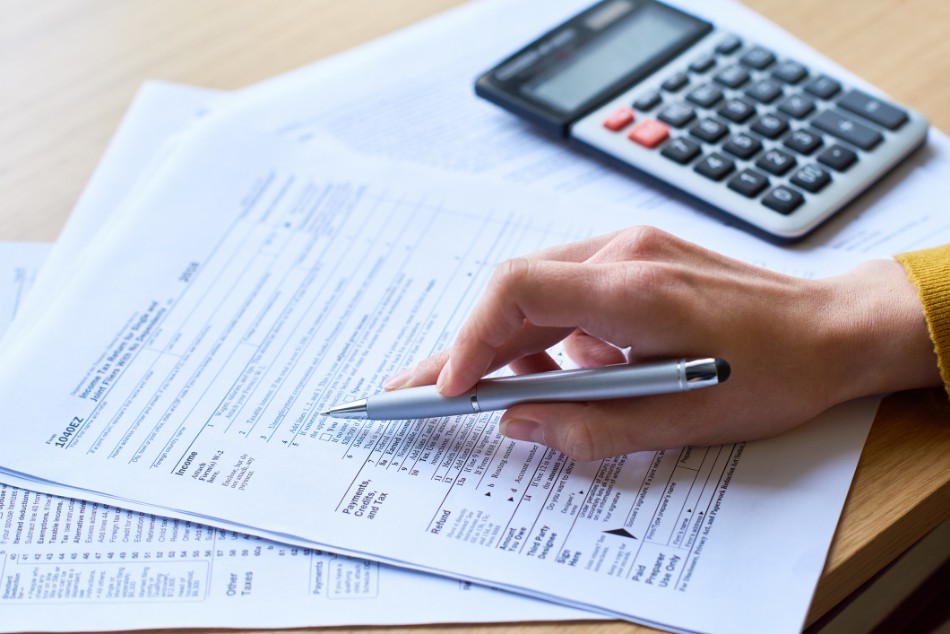Filing Tax on Rental Property Outside of Your Home State

If you own rental property, you already know that it comes with many responsibilities. If your rental is located outside of your home state, you have even more on your plate. One of the things you need to remember is that you are required to file an income tax return in the state your property is in.
Filing your taxes need not be a complicated process if you follow the right steps. But first, here are some things you need to know about rental income.
Rental income
Before you start calculating your taxes, you should know what falls under rental income. This income covers the payments you receive when someone occupies your rental property. From this definition alone, you would know that the rent your tenants pay you is part of your rental income.
Aside from monthly rent, any advance rent payments are included in your rental income for the year that they are paid. For example, if your tenant pays for their last month of rent in advance, you would count that as part of your income for that year.
Any portion of your tenant’s security deposit that you do not return will also be part of your rental income. For example, if you only return half of their deposit at the end of their lease and keep the other half to cover any charges or damage, the amount that you keep is considered rental income.
In addition, if your tenant provides a service on your rental — such as tending the garden or cleaning the sidewalk — in exchange for a deduction from their rent, the amount deducted still counts as rental income.
Tax deductions
When filing taxes for your business, certain expenses are deductible from your rental income. Any expenses tied to the rental property are qualified for deduction. These may include maintenance costs, property management, insurance, mortgage interest, homeowners association fees, property tax, and others.
Depreciation
Another qualified deductible for your rental income tax is depreciation. When a business incurs an expense that has a lifespan of one year or less, it is qualified as a deduction from your income. Any asset that is expected to last more than a year is considered a depreciation.
The IRS sets the lifespan of rental properties to 27.5 years. This means that you can deduct the depreciation of your rental property from your income over a period of 27.5 years.
To get your annual deduction, first, get the cost basis of the property by subtracting the value of the surrounding land from the amount you paid for the property. Then, divide the cost basis by 27.5. The resulting amount is the annual depreciation you can deduct from your rental income. You stop deducting this expense once you have accumulated a total depreciation equal to the cost basis of your property.
The rental property itself is not the only expense that is qualified for depreciation deductions. Some improvements made to the property may also be considered depreciation. These include additional structures, furniture, flooring, landscaping and heating, ventilation, and air conditioning.
Filing tax on your rental in another state
Now that you have an idea about rental income inclusions and deductions, you can start preparing your tax returns.
You are required to pay federal and state taxes for any rental income you earn. If you have a rental property in a different state than that you live in, you will need to report the income from that property in both your state return and in a return for the state where the property is located.
1. File your federal tax return
The first step to take is to fill up your federal tax return using the IRS Form 1040, Schedule E. Your properties should be separated by address if you have more than one. Include all deductions applicable to your property, such as property management, insurance and mortgage interest.
2. File a nonresidential state tax return
Tax laws differ from state to state so it is important to learn the laws in the state where your rental property is located. Once you have familiarized yourself with these laws, fill up a nonresidential tax return for that state. Depending on the state, you will need to include only the rental income and associated deductions from that state or use a ratio of the income from that state to the gross income on your federal return. If you are earning income from your home or other states, do not include those.
3. File a state tax return for your home state
When you prepare the state tax return for the state you live in, you still need to include the rental income from your out-of-state property even if you have already filed one for that state. Depending on your home state, you may be able to claim a credit for the same amount of taxes you owe the other state.
If you need help with property management in Texas, the expert team at Berkshire Hathaway HomeServices Caliber Realty is ready to serve you. Contact them by calling 979.694.8844 or send an email to sales(at)bhhscaliber(dotted)com.


